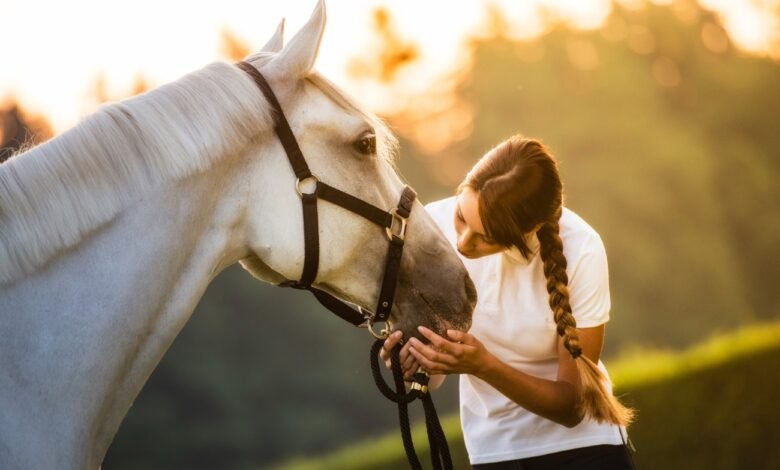
Rabies is a rapidly progressing neurologic disease caused by the Lyssavirus virus. It is primarily carried by wildlife in the United States.
Even though it doesn’t happen very often in horses, it kills all animals that aren’t vaccinated and is a major health risk for humans.
Symptoms of Rabies in Horses
Rabies has two major forms: paralytic and furious. Early signs may be vague or resemble mild colic, then may progress to any of these potential symptoms:
- Ataxia
- Weakness
- Aggression or anxiety
- Sensitivity to touch
- Circling
- Decreased appetite
- Lethargy
- Fever
When a horse gets the rabies virus, it may lie dormant or “incubate” for two weeks or as long as a few months.
Causes of Rabies in Horses
A lyssavirus is what causes rabies. Wildlife like skunks, coyotes, raccoons, bats and foxes are responsible for more than 90% of rabies cases in the United States. Rabies can spread to any mammal, including humans, through bite wounds, saliva getting on mucous membranes or breaks in the skin.
Once the virus gets into the body, it moves to the nervous system and makes the brain or spinal cord inflamed. This can cause a wide range of clinical signs.
How Veterinarians Diagnose Rabies in Horses
Unfortunately, rabies can only be diagnosed post-mortem (after death). Other differentials can be diagnosed with blood or cerebrospinal fluid laboratory tests. Rabies can be difficult to narrow down, especially in areas where it’s not common.
However, the rapid progression of clinical signs, a lack of vaccination records, or a history of exposure to wildlife bites, helps raise suspicion. Because this disease is reportable and poses a serious health risk to humans, after death, any horse with an unknown vaccine history and neurological symptoms will have brain samples submitted for testing.
Treatment of Rabies in Horses
Rabies is invariably fatal to unvaccinated horses. Once clinical signs start to show, things usually get worse quickly over the next few days. Vaccinating is highly successful, and if a horse is up-to-date, they do not seem to contract the disease.
Read More: Rabies in Cats
Prevention of Rabies in Horses
The only way to keep horses from getting sick is to give them vaccines. The American Association of Equine Practitioners (AAEP) says that foals born from mares that have already been vaccinated against rabies should start getting a two-dose series of rabies shots between the ages of 4 and 6 months.
A single rabies vaccine is given to foals born to mares that have not been vaccinated. This is done between the ages of 4 and 6 months. After that, all horses should be vaccinated once a year to keep their protection up to par.
When a horse’s immune system is exposed to a weakened version of this virus, it is given the antibodies it will need if it is ever bitten by a live virus.
Read More: Rabies in Dogs







